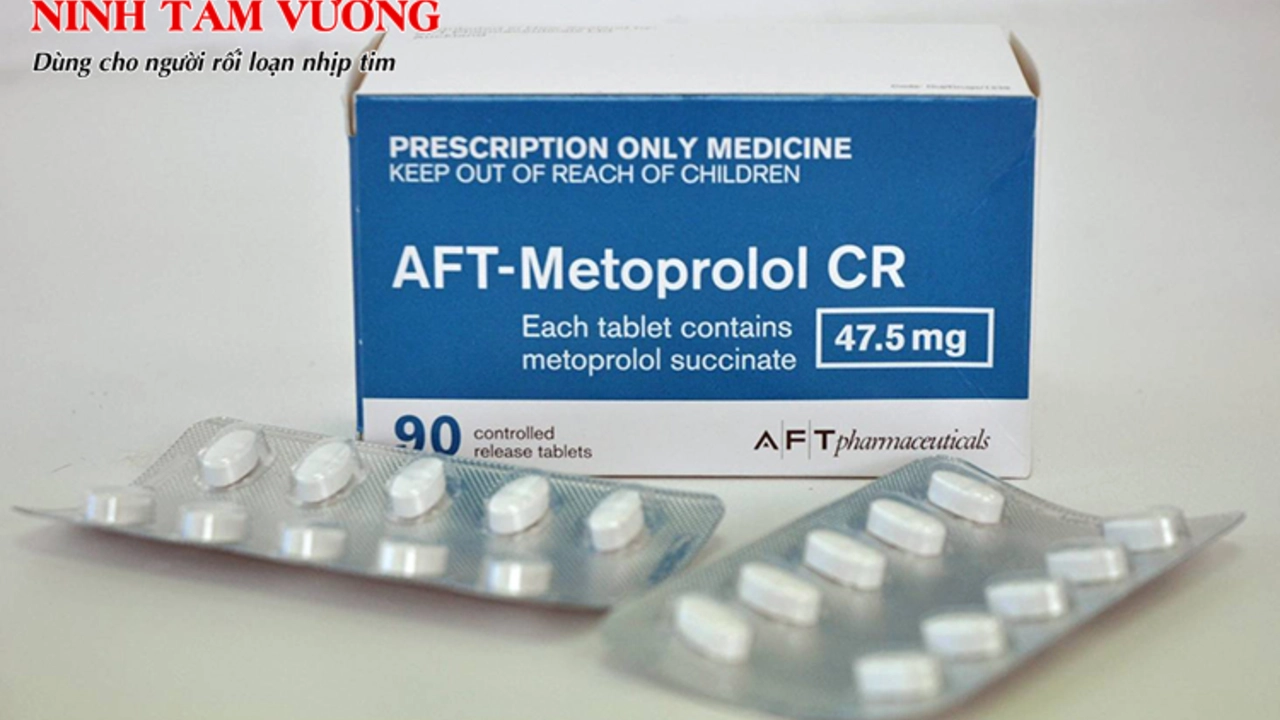Nebivolol vs. Metoprolol: A Comparison of Two Beta-Blockers
 Jul, 6 2023
Jul, 6 2023
Understanding Beta-Blockers: Nebivolol and Metoprolol
Before diving into the comparison between Nebivolol and Metoprolol, let's take a moment to understand what beta-blockers are. Beta-blockers, also known as beta-adrenergic blocking agents, are a type of medication used to treat various conditions such as high blood pressure, chest pain, irregular heart rhythms, and heart failure. They work by blocking the effects of the hormone adrenaline, also known as epinephrine. This slows down your heart rate, reduces the force at which your heart muscle contracts and decreases blood pressure. Now, Nebivolol and Metoprolol are two commonly prescribed beta-blockers, and each has its unique features and uses.
An Overview of Nebivolol
Nebivolol is a relatively newer beta-blocker, often marketed under the brand name Bystolic. It's primarily used to treat hypertension, or high blood pressure. What sets Nebivolol apart from other beta-blockers is its unique mechanism of action. Not only does it work by blocking beta receptors in the heart, but it also stimulates the production of nitric oxide, a molecule that helps in the dilation of blood vessels. This dual action helps reduce blood pressure more effectively.
An Overview of Metoprolol
Metoprolol, available under the brand names Lopressor and Toprol XL, is one of the most commonly prescribed beta-blockers. It's used in the treatment of high blood pressure, angina (chest pain), heart failure, and is also used to prevent migraine headaches. Metoprolol is a selective beta-blocker, meaning it specifically targets the beta-1 receptors in the heart, thereby reducing the heart rate and decreasing the force of heart muscle contraction.
Comparing the Side Effects of Nebivolol and Metoprolol
Like all medications, both Nebivolol and Metoprolol come with potential side effects. Common side effects of Nebivolol include headache, fatigue, and dizziness. On the other hand, Metoprolol may cause side effects such as fatigue, insomnia, and shortness of breath. It's important to note that not everyone will experience these side effects, and they may vary depending on factors like dosage and individual tolerance.
Deciding Between Nebivolol and Metoprolol: Which is Better?
Choosing between Nebivolol and Metoprolol often depends on the specific needs and overall health of the patient. Both medications are effective in managing high blood pressure and other heart-related conditions. However, because of Nebivolol's unique mechanism of action, it might be a better choice for patients who haven't responded well to other beta-blockers. On the other hand, Metoprolol has a longer track record and is a first-line treatment for a variety of conditions. Ultimately, the decision between Nebivolol and Metoprolol should be made by a healthcare provider based on the patient's individual health status and needs.

Melvin Thoede
July 7, 2023 AT 18:34Still, I get why docs stick with metoprolol-it's cheap, proven, and works for most people. Just wish more providers knew about nebivolol's edge.
Suzanne Lucas
July 8, 2023 AT 03:09Also why does no one talk about how metoprolol makes you dream about your ex? I had nightmares for months.
Ash Damle
July 8, 2023 AT 09:14Side note if you’re tired all the time on beta blockers talk to your doc about nebivolol. It’s not magic but it’s close.
Kevin Ouellette
July 9, 2023 AT 03:25It’s been 3 weeks and I’m sleeping better, no more leg cramps, and I actually went for a walk yesterday without needing a nap afterward. You guys are the real MVPs.
Tanya Willey
July 9, 2023 AT 20:13Stop taking pills. Eat real food. Walk. Sleep. And stop letting doctors sell you placebo magic.